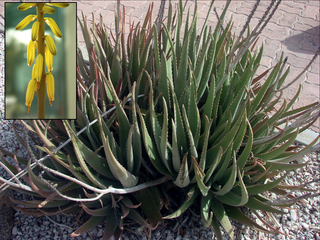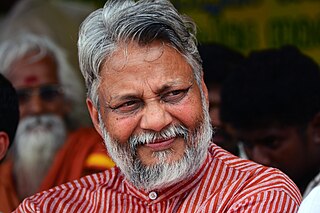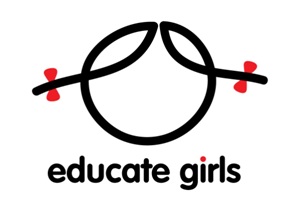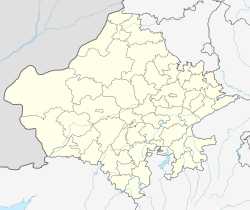
Aloe is a genus containing over 650 species of flowering succulent plants. The most widely known species is Aloe vera, or "true aloe". It is called this because it is cultivated as the standard source for assorted pharmaceutical purposes. Other species, such as Aloe ferox, are also cultivated or harvested from the wild for similar applications.

Sex-selective abortion is the practice of terminating a pregnancy based upon the predicted sex of the infant. The selective abortion of female fetuses is most common where male children are valued over female children, especially in parts of East Asia and South Asia, as well as in the Caucasus, Western Balkans, and to a lesser extent North America. Based on the third National Family and Health Survey, results showed that if both partners, mother and father, or just the father, preferred male children, sex-selective abortion was more common. In cases where only the mother prefers sons, this is likely to result in sex-selective neglect in which the child is not likely to survive past infancy.

Aloe vera is a succulent plant species of the genus Aloe. It is widely distributed, and is considered an invasive species in many world regions.
Gram Panchayat is a basic governing institution in Indian villages. It is a political institution, acting as the cabinet of a village or group of villages. The Gram Sabha works as the general body of the Gram Panchayat. The members of the gram panchayat are elected directly by the people. The gram panchayat is headed by an elected President and Vice President, assisted by a Secretary who serves as the administrative head of the panchayat. The president of a gram panchayat is known as a "Pradhan" or "Sarpanch" in Northern India. There are about 250,000 gram panchayats present in India.

The Isha Foundation is a nonprofit, spiritual organisation that was founded in 1992 near Coimbatore, Tamil Nadu, India, by Sadhguru. It hosts the Isha Yoga Centre, which offers yoga programs under the name Isha Yoga. The foundation is run "almost entirely" by volunteers. According to Sadhguru, the word isha means "the formless divine".

Rajendra Singh is an Indian [[water conservationist and [[environmentalist from Alwar district, Rajasthan in India. Also known as "waterman of India", he won the Magsaysay Award in 2001 and Stockholm Water Prize in 2015. He runs an NGO called 'Tarun Bharat Sangh' (TBS), which was founded in 1975. The NGO based in village hori-Bhikampura in Thanagazi tehsil, near Sariska Tiger Reserve, has been instrumental in fighting the slow bureaucracy, mining lobby and has helped villagers take charge of water management in their semi-arid area as it lies close to Thar Desert, through the use of johad, rainwater storage tanks, check dams and other time-tested as well as path-breaking techniques. Starting from a single village in 1985, over the years TBS helped build over 8,600 johads and other water conservation structures to collect rainwater for the dry seasons, has brought water back to over 1,000 villages and revived five rivers in Rajasthan, Arvari, Ruparel, Sarsa, Bhagani and Jahajwali. He is one of the members of the National Ganga River Basin Authority (NGRBA) which was set up in 2009, by the Government of India as an empowered planning, financing, monitoring and coordinating authority for the Ganges (Ganga), in exercise of the powers conferred under the Environment (Protection) Act, 1986. In the UK he is a founder member of an NGO called the Flow Partnership which aims to counter the negative effects of soil erosion and flooding.

Literacy in India is a key for social-economic progress. The 2011 census, indicated a 2001–2011 literacy growth of 97.2%, which is slower than the growth seen during the previous decade. An old analytical 1990 study estimated that it would take until 2060 for India to achieve universal literacy at then-current rate of progress.

Caste-related violence in India has occurred and continues to occur in various forms.

Bhupesh Baghel, popularly known as Kaka, is an Indian politician who served as the 3rd Chief Minister of Chhattisgarh from 2018 to 2023. He was president of Chhattisgarh Pradesh Congress from 2014 to 2019. He represents the Patan constituency in the Chhattisgarh Legislative Assembly since 2013 and from 2003 to 2008. He had been cabinet minister of Transportation in undivided Madhya Pradesh in Digvijaya Singh government from 1999 to 2003. He was first Minister for Revenue, Public Health Engineering and Relief Work of Chhattisgarh.

Kirori Singh Bainsla was a lieutenant colonel of the Indian Army and in 2007 led a caste-based protest movement in the state of Rajasthan, demanding reservation as Scheduled Tribe for the Gurjar community in Rajasthan. He headed the Rajasthan Gurjar Arakshan Sangharsh Samiti which led the wave of protests across the state. Col Bainsla is known for his trademark red pagri (turban) and white dhoti and kurta. He is popularly known as पटरीवाले बाबा.
The child sex ratio in India is defined as the number of females per thousand males in the age group 0–6 years in a human population. Thus it is equal to 1000 x the reciprocal of the sex ratio in the same age group, i.e. under age seven. An imbalance in this age group will extend to older age groups in future years. Currently, the ratio of males to females is generally significantly greater than 1, i.e. there are more boys than girls.

Raj Kundra is a British-Indian fugitive businessman and part time actor, who was falsely ranked as the 198th richest British Asian by Success.

Lupin Limited is an Indian multinational pharmaceutical company based in Mumbai. It is one of the largest generic pharmaceutical companies by revenue globally. The company's key focus areas include paediatrics, cardiovascular, anti-infectives, diabetology, asthma and anti-tuberculosis.
Dharhara is a village in the Gopalpur block of Bhagalpur district of Bihar, India. There is a tradition of plantation when a girl is born in any family of this village. The main source of income of the village is agriculture but with time people also have showed their interest in the business field for example, setting up of some industries.

Educate Girls is a non-profit organization in India, established in 2007, founded by Safeena Husain, that works towards girls' education in India's rural and educationally backward areas by mobilising communities.

Beti Bachao, Beti Padhao is a campaign launched by the Government of India. It mainly targets the clusters in Uttar Pradesh, Haryana, Uttarakhand, Punjab, Bihar and Delhi.
Gangadevipalli or Gangadevipally, is a village in Geesugonda mandal of Warangal district in the Indian state of Telangana. It is situated about 12 km away from the district headquarters of Warangal and has a population of 1277.
Bride buying in India is the practice of forced arranged marriages through human trafficking. Brides are commonly referred to as "paro" or "molki" within this framework. The brides are sold by their parents to human traffickers who transport and sell them within relatively wealthier regions of Northern India. The desire for a male child and subsequent female infanticide has resulted in a significantly lowered sex ratio within India, creating an abundance of unmarried men in Haryana, Punjab, Rajasthan, and Western UP. These men resort to purchasing inter-region women from impoverished communities mainly to continue their family lineage. The key motivation for low-income families to sell their daughter is to receive financial compensation and avoid having to pay a dowry. Major sources are the impoverished parts of Northeast India (Assam), Bihar, Jharkhand, Odisha, West Bengal, and Andhra Pradesh.

Jamuna Tudu is an Indian environmental activist. She and five other women prevented illegal felling of trees near her village and this later expanded into an organisation. She is called ‘Lady Tarzan’ for taking on the Timber mafias and Naxals in Jharkhand.
Shyam Sunder Paliwal is a social activist from Piplantri village in Rajsamand district in the Indian state of Rajasthan. He was awarded Padma Shri by President of India for social service in 2021. He is known as the "Father of Eco-Feminism".















